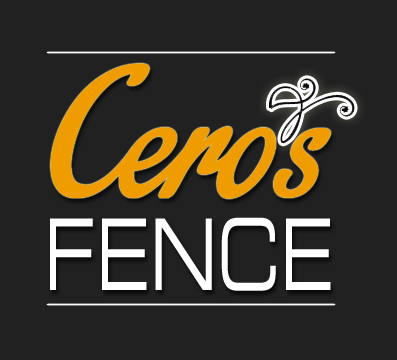Living by the beach comes with breathtaking views and a relaxing environment. However, it also presents unique challenges, especially when it comes to choosing the right fencing material for your property. Coastal weather conditions, including salt air, strong winds, and high humidity, can take a toll on traditional fences. This guide explores the best fencing materials for beachfront properties, ensuring durability, aesthetics, and low maintenance.
What to Look for in a Beachfront Fence
Beachfront fences need to withstand harsh environmental factors. Here are the key features to consider:
- Salt Resistance: Salt in the air causes corrosion and decay, especially in metals.
- Durability Against Wind: High winds require sturdy materials and designs.
- Low Maintenance: A fence that requires minimal upkeep saves time and money.
- Long Lifespan: Choose materials designed for longevity in challenging conditions.
Vinyl Fencing: Durable and Low Maintenance
Vinyl, or PVC fencing, is one of the most popular choices for coastal properties due to its resilience.
Pros:
- Resistant to salt air and moisture.
- Maintains its shape and color under extreme heat.
- Requires little to no maintenance—no painting or sealing needed.
- Pest-resistant, ensuring long-lasting durability.
Cons:
- Requires proper installation to withstand strong winds.
- Solid panels may act like sails during storms.
For expert PVC fencing solutions, check out Vinyl Fence Options.
Aluminum Fencing: Strong and Stylish
Aluminum fences are lightweight, rust-resistant, and aesthetically pleasing. They are ideal for properties exposed to salt and high humidity.
Pros:
- Naturally resists rust and corrosion.
- Open picket designs allow wind to pass through, reducing storm damage.
- Low maintenance and long-lasting.
- Does not warp or fade under heat.
Cons:
- Higher initial investment.
- Limited privacy due to open designs.
Learn more about aluminum options at Aluminum Fence Solutions.
Wood Fencing: Classic and Elegant
Wood fences, particularly cedar and redwood, provide a natural and classic appeal that complements coastal landscapes.
Pros:
- Natural resistance to moisture and decay.
- Can be treated and painted for added durability.
- Aesthetic appeal that enhances property value.
Cons:
- Requires regular staining or painting to prevent rot and mold.
- Shorter lifespan compared to other materials in coastal environments.
Explore more options for Wood Fences.
Chain-Link Fencing: Practical and Affordable
Chain-link fences are a cost-effective solution for securing large beachfront properties.
Pros:
- Allows wind to pass through, reducing the risk of damage.
- Affordable and easy to install.
- Low maintenance, especially when galvanized.
Cons:
- Limited visual appeal compared to other materials.
- Minimal privacy, though slats can be added.
For more information, visit Chain-Link Fence Options.
Glass Fencing: Luxurious and Modern
Glass fences are an excellent option for homeowners who want unobstructed ocean views.
Pros:
- Provides a sleek, modern appearance.
- Perfect for showcasing beachfront views.
Cons:
- Requires frequent cleaning to remove salt residue and water stains.
- Vulnerable to damage during storms.
- Does not offer privacy.
Comparing Fence Materials
| Material | Durability | Maintenance | Aesthetic Appeal | Cost |
| Vinyl | High | Low | Moderate | Affordable |
| Aluminum | High | Low | High | Expensive |
| Wood | Moderate | High | High | Moderate |
| Chain-Link | High | Low | Low | Affordable |
| Glass | Low | High | Very High | Expensive |
How to Choose the Right Fence
When deciding on a fence material, prioritize these factors:
- Durability: Aluminum and vinyl offer the best performance in coastal climates.
- Aesthetics: Glass and wood create a premium look but need more care.
- Privacy: Vinyl and wood are ideal for privacy, while chain-link and glass are more open.
- Budget: Chain-link and vinyl are the most cost-effective options.
For residential properties, explore our Residential Fencing Solutions. Businesses can also check out Commercial Fencing Options.
Hurricane-Proof Fencing Tips
Coastal areas often experience hurricanes and high winds. To ensure your fence is hurricane-proof:
- Opt for aluminum or chain-link designs to allow wind to pass through.
- Install sturdy posts and brackets for vinyl fences.
- Avoid solid wood fences in areas with frequent high winds.
For more advice, visit our Hurricane-Proof Fence Installation Guide.
Environmental Considerations
Eco-friendly fencing materials are essential for preserving coastal ecosystems. Here are some options:
- Wood: Use sustainably sourced cedar or redwood.
- Vinyl and Aluminum: Recyclable and long-lasting, minimizing waste.
Learn more about sustainable options at Dura Fence Solutions.
Conclusion
Beachfront properties require fences that can withstand challenging environmental conditions while adding beauty and security. Consider aluminum or vinyl for their durability and low maintenance. For aesthetics, glass or wood are excellent choices if you’re willing to handle extra care.
For custom fencing solutions customized to your needs, visit Ceros Fence Contractors. Call us today at TEL: +13058878668 to schedule a consultation!
